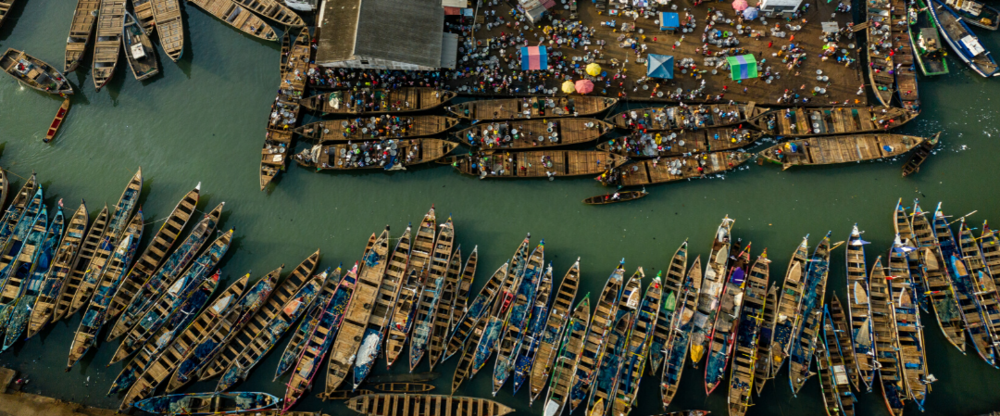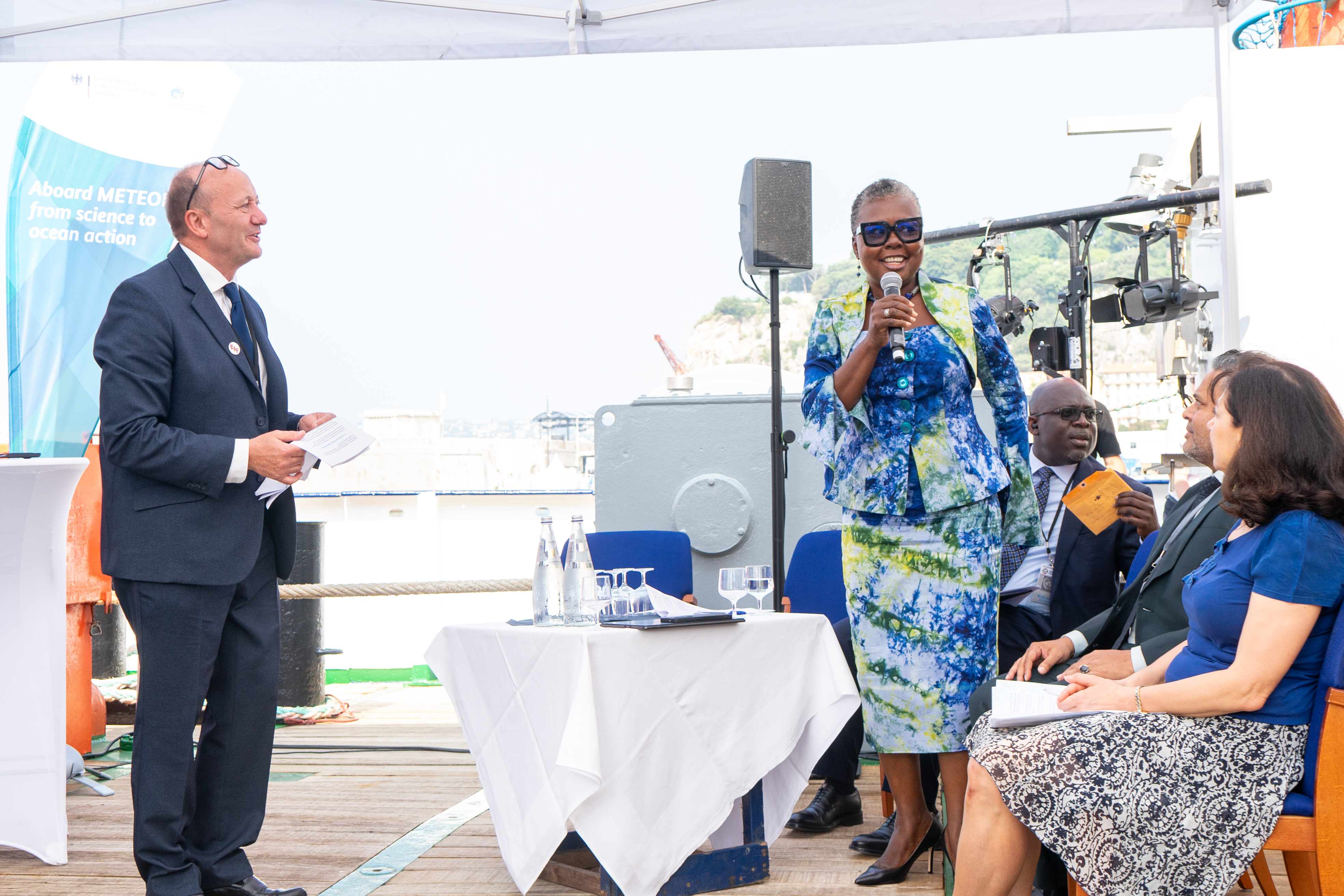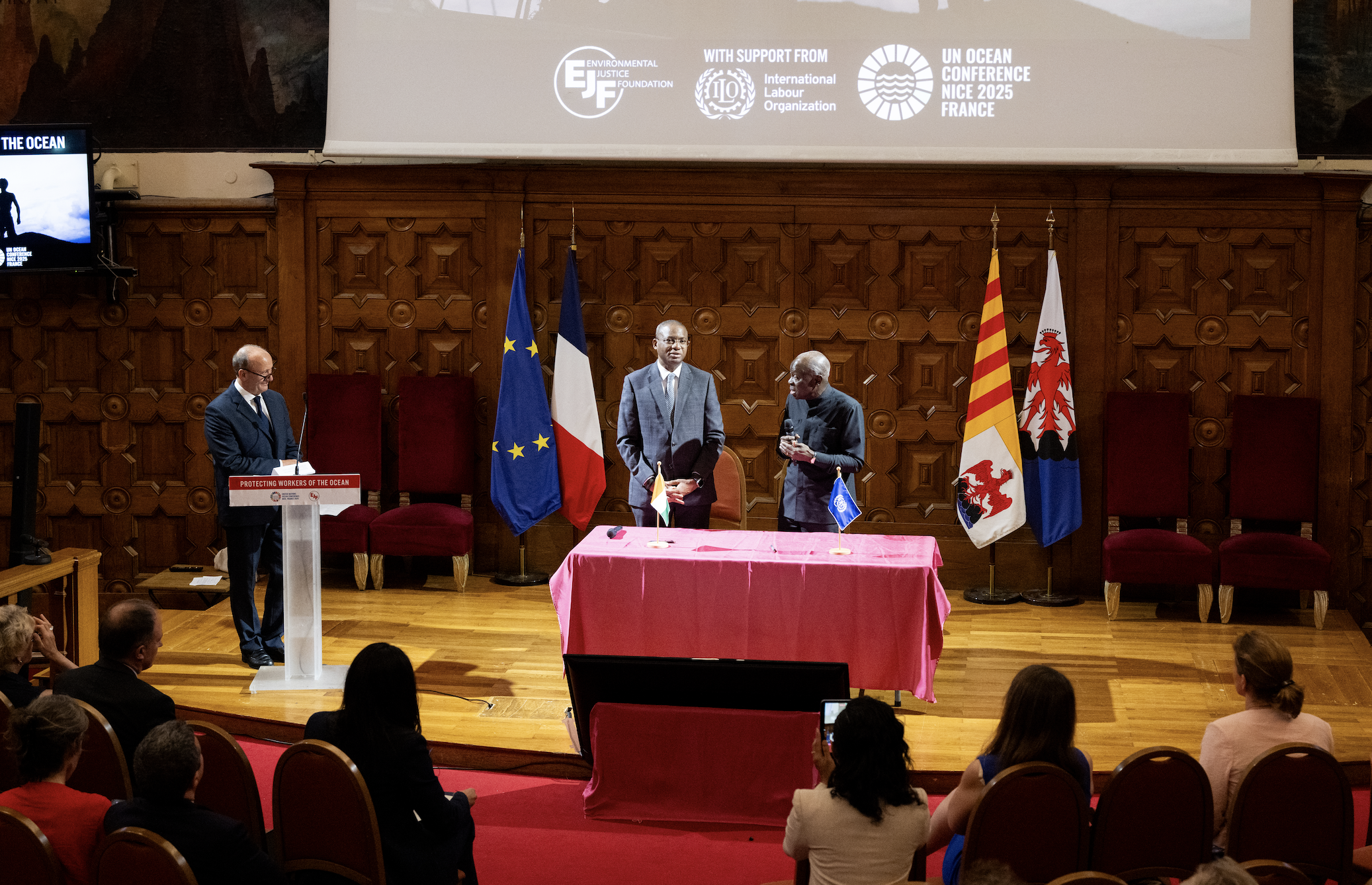
Ghana’s new Fisheries and Aquaculture Act should be approved in full, including critical IEZ expansion: press release
Accra, Ghana, 25 July 2025
The Environmental Justice Foundation (EJF) is today commending the Government of Ghana’s important package of reforms for the fisheries sector and urging His Excellency President John Dramani Mahama to sign them into law. The Fisheries and Aquaculture Act should be adopted in its entirety, including the crucial expansion of the inshore exclusive zone (IEZ) from 6 to 12 nautical miles. Any form of lobbying from the industrial trawl sector to remove this expansion would directly harm small-scale fishers across Ghana, says EJF.
On 16 July 2025, Parliament passed the landmark Fisheries and Aquaculture Law 2025, which includes vital measures to restore Ghana’s ocean ecosystems, strengthen food security for millions of Ghanaians, and protect the rights and livelihoods of Ghana’s more than 200,000 small‑scale fishers operating across 12,000 canoes. This follows important steps taken by President Mahama’s government to sanction illegal vessels.
A critical pillar of the new law is the expansion of the IEZ - the area reserved for small-scale fishers - from 6 to 12 nautical miles, affording artisanal canoes the space they need to fish sustainably, without competing with industrial trawlers.
However, industrial fishing interests are lobbying the Presidency to remove the IEZ expansion from the law before final approval. EJF respectfully calls on President Mahama to resist these pressures and sign the Act into law as it stands.
The IEZ extension was first announced by Fisheries Minister Emelia Arthur at the United Nations Ocean Conference (UNOC) earlier this year. Speaking recently at a stakeholder workshop hosted by the Accountability Research Center, Minister Arthur said:
“This new law is a testament to our unwavering commitment to a resilient, equitable, and future‑proof fisheries and aquaculture sector.”
The new boundary would push destructive industrial trawling further offshore and give fish populations, especially the small pelagic species that coastal communities in Ghana depend on, a chance to recover.
Since 2002, Ghanaian law has restricted industrial trawlers to demersal (bottom‑dwelling) species. Yet EJF’s monitoring has repeatedly documented these vessels targeting small pelagics, in violation of Ghanaian law. These activities have caused rapid fish population declines, forcing small-scale fishers to venture farther out to sea and return empty‑handed more frequently than before.
Globally, other countries are now moving to expand their IEZs or close other forms of protected areas to bottom trawlers, just as Ghana is doing now. Approving the Fisheries and Aquaculture Act in full would demonstrate bold leadership, place the long‑term interests of Ghana’s coastal communities above short‑term industrial gains, and ensure a sustainable future, says EJF.
Steve Trent, EJF CEO and Founder, said: “This law is a vital step to protect Ghana’s ocean and the communities depending on it. President Mahama’s government has shown true leadership to bring it this far, with important scrutiny and approval from Parliament. By expanding the IEZ, they are standing with Ghana’s small-scale fishers, defending food security, and protecting Ghana’s ocean resources for Ghana’s people, who they rightly belong to. Now we respectfully urge President Mahama to stand with Ghana’s fishers, resist any lobbying from the industrial sector, and approve the Act without amendment.”
ENDS
Notes to editors
About EJF
Our work to secure environmental justice aims to protect our global climate, ocean, forests, wetlands, wildlife and defend the fundamental human right to a secure natural environment, recognising that all other rights are contingent on this. EJF works internationally to inform policy and drive systemic, durable reforms to protect our environment and defend human rights. We investigate and expose abuses and support environmental defenders, Indigenous peoples, communities, and independent journalists on the frontlines of environmental injustice. Our campaigns aim to secure peaceful, equitable and sustainable futures. Our investigators, researchers, filmmakers, and campaigners work with grassroots partners and environmental defenders across the globe. For more information, please contact media@ejfoundation.org.
SIGN UP FOR OUR EMAILS AND STAY UP TO DATE WITH EJF

